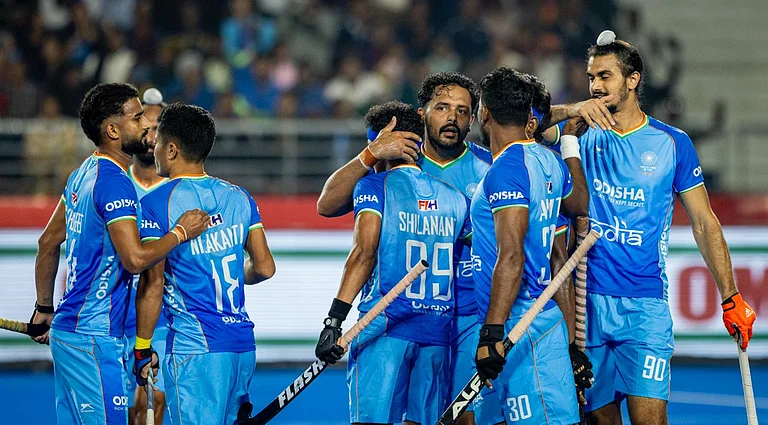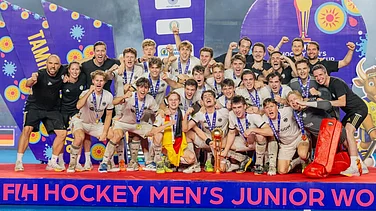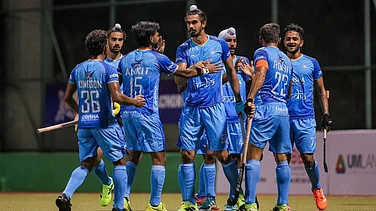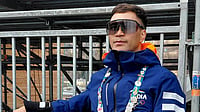Keen to move past water-guzzling synthetic pitches, the International Hockey Federation is set to mandate dry turfs at all major events after the Paris Olympics and the world body made a stop-over in India on Wednesday to extol the virtues of the innovation that has not yet been embraced by the country. (More Hockey News)
At the 'Dry Turf Seminar', which was attended by its Facilities and Quality Programme Manager Alastair Cox, the FIH made a pitch for the turfs to make their India debut after being installed in Bloemfontein, South Africa earlier this month.
The turfs made their competition debut in January when they were used during the Hockey World Cup in Oman.
The FIH is promoting them as a sustainable option against the currently-in-use artificial turfs that require 6,000 litres of water daily for maintenance, as per available estimates.
"This is just an evolution. We think manufacturers will change the coatings on the sticks to lower friction. In the long term, I don't think we will see major differences," Cox said when asked whether the players are ready for the change.
So far, by FIH's own admission, the experiment has yielded mixed results. In its assessment after the Hockey World Cup, the FIH stated that the "new prototype performed better than any existing turf but there is still improvement to be made."
"Based on player feedback it is clear that areas need to be improved...," it said without specifying the exact nature of improvements needed.
Ever since synthetic turfs, made up of fibers which look like natural grass, were introduced in the late 1970s to replace grass pitches, players have preferred to compete on them when they are wet.
The dry turfs, in contrast, are made of bio-based sugarcane, which do not require watering at all.
"Experience shows that water provides fast, predictable, and consistent playing conditions that allow players to perform to the best of their ability," the FIH has stated in the past.
However, with several parts of the world facing an acute shortage of water, the world body has been compelled to explore sustainable options.
"I think the players and some of the techniques have to evolve. So, yeah I don't think it will make a major transition. The difference will be significantly less if we remove the natural grass to synthetic turf, what we did 50 years ago was radical," Cox reasoned.
"...it is a totally different game then what it really was when it was played on grass. The major hockey games in the world now are almost exclusively played on synthetic turf," he added.
Hockey India was not represented at Wednesday's event and when reached out, a source said, while HI doesn't disagree with the idea, it would like to have more structured guidelines to make a move.
"We have to have specific guidelines from FIH on how to go about it. Till the time it happens, we cannot proceed," a source in HI told PTI.
Currently, FIH's Preferred Turf Suppliers, Polytan and Greenfields, are launching dry turf products in the global hockey market.
In India, Odisha is the spiritual home of hockey with top-notch infrastructure that has hosted World Cup level events and it won't be a surprise if the introduction of dry turfs could also start from the state.




























